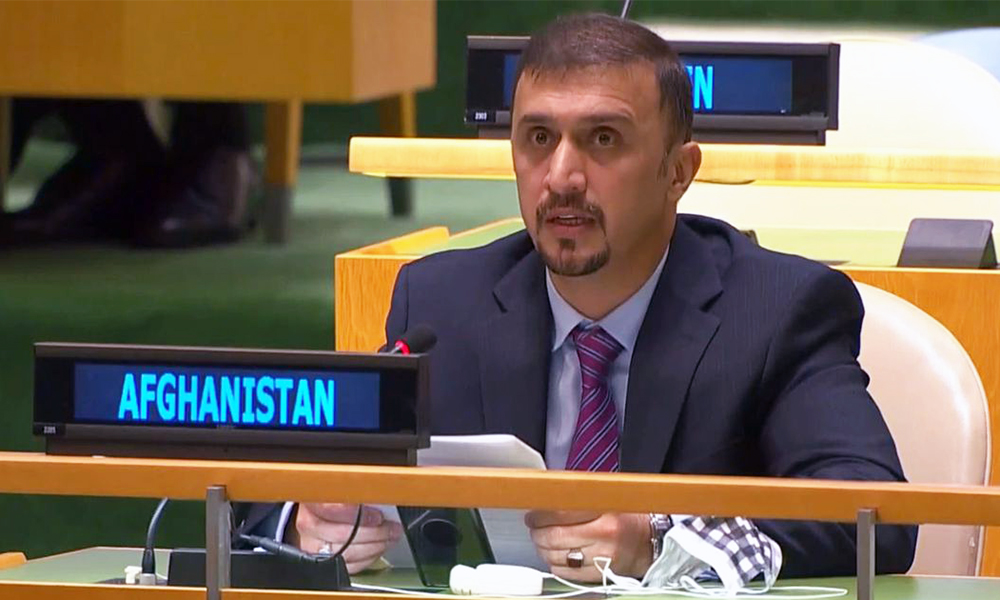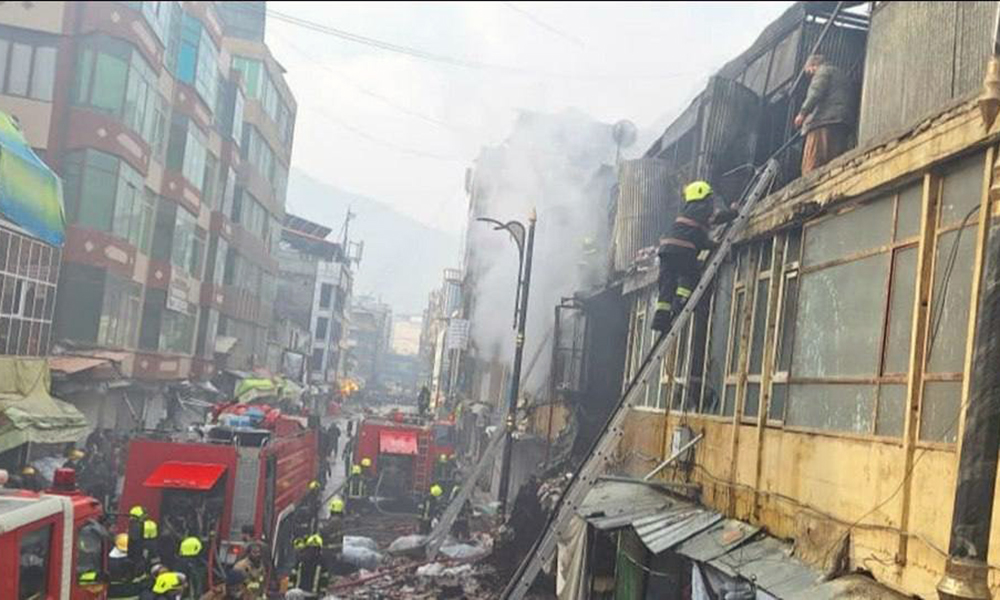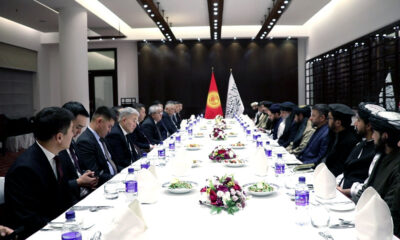Latest News
Afghan ‘envoy’ to UN continues to work despite going unpaid for 4 months

Afghanistan’s chargé d’affaires to the United Nations Naseer Ahmad Faiq says despite not having been paid for four months he, and his staff, continue to work for Afghanistan and its people.
In an exclusive interview with RFE/RL, Faiq said he has no ties to the Islamic Emirate of Afghanistan (IEA) authorities nor with the Resistance Front but he consults with a number of Afghan diplomats still stationed in various countries around the world.
Faiq took over as chargé de affairs earlier this month after Ghulam Mohammad Ishaqzai, Afghanistan’s former envoy to the United Nations, resigned. Faiq succeeded Ishaqzai as he had been the envoy’s top adviser.
“The current situation in Afghanistan is clear, so there is no need to seek guidance from anyone or any group for our work. We strive to take the voice of our people to the world, in consultation with a number of diplomats who are committed to the national interest of Afghanistan, and to carry out this task,” Faiq told RFE/RL.
He said the UN’s view of the Islamic Emirate of Afghanistan (IEA) is clear and that the international community will only recognize the IEA government once issues around women’s rights and human rights are addressed and when ties are cut with terrorist organizations.
Faiq told RFE/RL he is trying to address the current humanitarian crisis.
However, Bilal Karimi, the IEA’s deputy spokesman, said Faiq’s remarks were his personal opinion and that he does not represent all Afghans at the United Nations.
The IEA has appointed Suhail Shaheen as the IEA’s envoy to the United Nations, but the UN voted against him earlier this month.
Latest News
Afghanistan signs 30-year deal for marble mining in Daikundi

The Ministry of Mines and Petroleum of Afghanistan has signed a 30-year agreement with a private company to extract marble in Daikundi province.
Under the contract, the company will invest AFN 283 million in exploring and mining marble at the “Mesh-Uliya” site, spanning 16.74 square kilometers in central Daikundi.
Hedayatullah Badri, Minister of Mines and Petroleum, stated that the marble will be processed domestically before being exported abroad. He added that the Mesh-Uliya project is expected to create around 200 jobs, and the company is committed to supporting local communities through social initiatives.
Economic experts highlight that such investments, especially those focusing on domestic processing, are crucial for job creation, boosting exports, and strengthening the national economy. Analysts further note that the project will improve local infrastructure, expand social services, and enhance the economic and social well-being of Daikundi residents.
Since the return of the Islamic Emirate to power, efforts to develop Afghanistan’s mining sector have intensified, with multiple contracts signed in areas including cement, copper, iron, and lapis lazuli, involving both domestic and international companies.
Latest News
Passenger bus veers off Salang Highway, leaving 5 dead, dozens injured
Latest News
Major fire in Mandawi Kabul market contained, extensive losses prevented
Local shopkeepers said the fire broke out around 4 a.m.

The Ministry of Interior reported that personnel from the General Directorate of Firefighting and Emergency Response successfully prevented the further spread of a fire at Mandawi market on Kabul early Sunday morning.
Abdul Mateen Qani, spokesperson for the ministry, said that the fire destroyed 10 storage facilities and 8 shops. He added that initial losses are estimated at around $700,000, but timely action by firefighting personnel saved property worth approximately $2.2 million.
Qani explained that the fire was caused by an electrical short circuit. He praised the rapid and effective containment operations, which prevented more extensive damage.
Local shopkeepers said the fire broke out around 4 a.m.
-

 International Sports5 days ago
International Sports5 days agoIPL 2026: Teams take shape after auction as franchises balance star power and depth
-

 International Sports5 days ago
International Sports5 days agoILT20: Abu Dhabi Knight Riders end Desert Vipers’ unbeaten run in dramatic one-run win
-

 Latest News3 days ago
Latest News3 days agoAfghan border forces prevent illegal entry of hundreds into Iran
-

 Latest News2 days ago
Latest News2 days agoPakistan summons Afghan diplomat over deadly attack in North Waziristan
-

 Business5 days ago
Business5 days agoMahirood Customs leads Iran’s exports to Afghanistan
-

 Latest News5 days ago
Latest News5 days agoAfghanistan, Kyrgyzstan discuss expanding trade and economic cooperation
-

 Latest News3 days ago
Latest News3 days agoJapan allocates nearly $20 million in humanitarian aid for Afghanistan
-

 Latest News2 days ago
Latest News2 days agoKarzai urges reopening of girls’ schools and universities for Afghanistan’s bright future

























